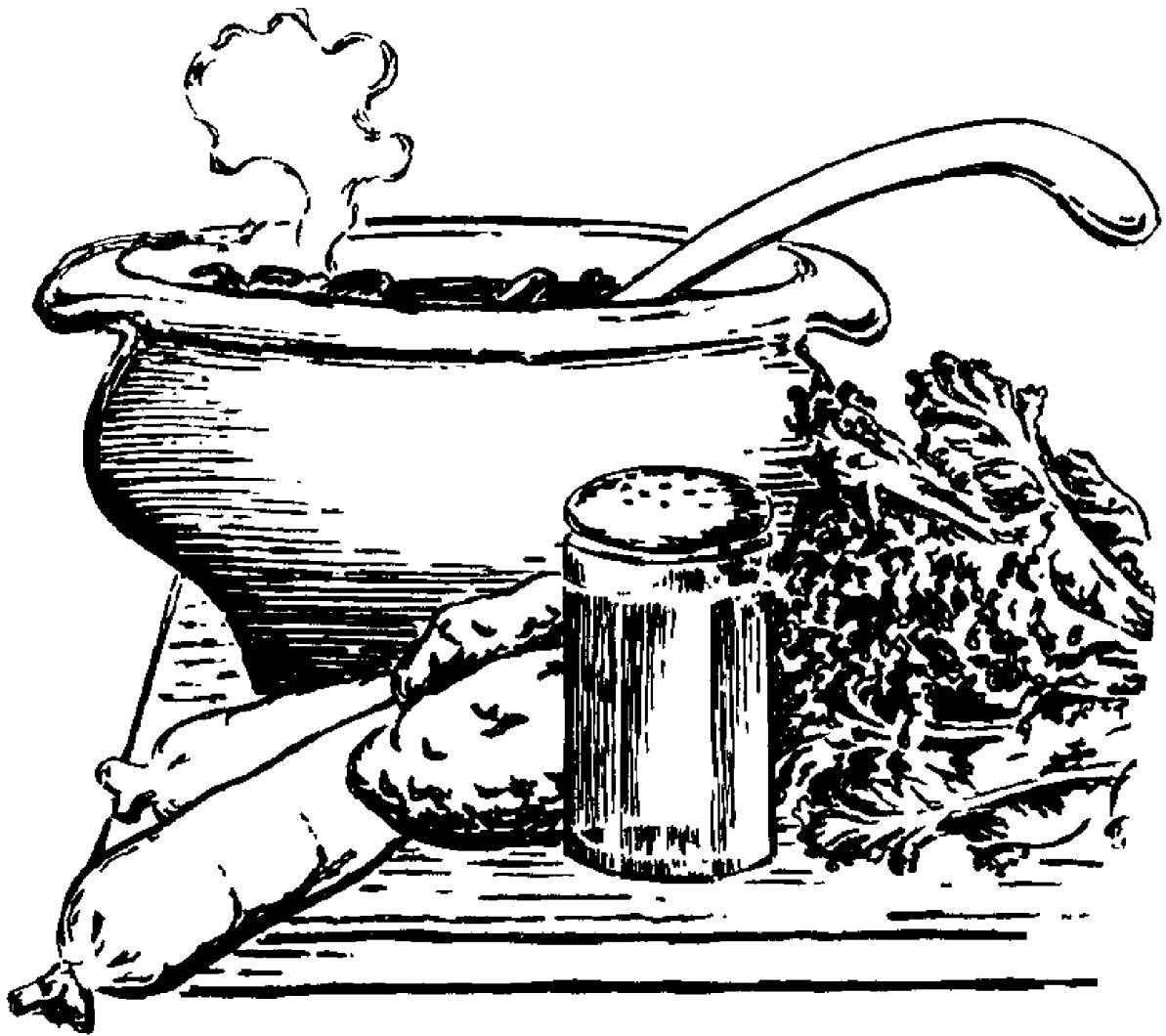Back in the tumultuous 1960s my wife Penny and I worked for Time-Life Books in New York city. The company had became expert at conceiving and selling book series that stretched on as long as customers bought a book regularly.
I started on the science series, a bestseller for any family with a school kid. When that subject showed signs of buyer resistance, I was assigned to the Foods of the World Series. It sprang from a Life magazine series of great dinners with tantalizing photos from Life’s staff of photographers.
This was a subject about which I knew nothing about except to use dinner forks from the outside in. Although I considered myself a writer with a fresh master’s degree from Columbia Journalism School, I was in charge of assigning photography for specific books while an editorial staff hired a name author and developed about 10,000 words on the title.
In sheets of drafts and research notes for a book about French provincial cooking I read a phrase about “a pot of soup kept on the back of the stove.” My imagination took it from there. It made my mouth water.
I decided just before Christmas and new year that I would make a pot of wonderful tasty beans, with a fine French pain to go with it. We bought several different bags of beans. I added them one by one along with a hambone and chicken stock and a bottle of French wine into the big pot and cooked them up into a great-smelling soup.
After cooking to delicious perfection, I pushed the pot to the back of the gas stove and turned off the flame.
The next day, Penny’s parents were coming into town from New Jersey and I wanted to feed them my great soup so they would stop thinking that I was an Okie idiot with no sophistication. I rushed to our apartment after work and pulled the pot to the front burner and turned on the flame. But when I took off the lid to stir it, the soup gave off a burp even before I put my spoon in. Then a bubble appeared, raising my suspicions.
The soup looked delicious, golden brown and beany and potentially fragrant. But how could it bubble without the flame being on, I wondered? I realized later that the phrase which inspired me “a pot of soup kept on the back of the stove,” referred to a country wood, coal or peat-burning stove, which always had a flame going.
I mentioned the burping soup to Penny who said, hmmm, and that she was going to call an expert, a woman who worked in the kitchen to test recipes for the books. The woman Fifi was ill with flu and her husband shouted to her from the phone that our soup bubbled before the fire could heat it. Penny could hear Fifi shout back from her sickbed: “Stop! It’s ptomaine!,” meaning it had turned poisonous.
I flushed the entire pot into the New York City sewer system, hoping I wasn’t responsible for poisoning the fish in the Hudson River.
Since then, I’ve never attempted to cook anything more complex than scrambled eggs. My wife adds that I’m best at warming takeout in the microwave.
Don Hinkle lives in Oak Bluffs.




Comments (1)
Comments
Comment policy »